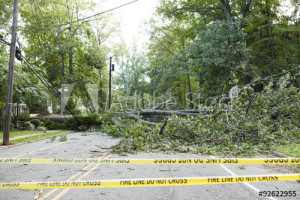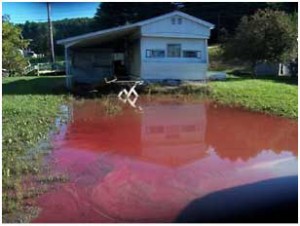UV Adaptation Workgroup Sets Strategic Direction
In September 2017, the Upper Valley Adaptation Workgroup (UVAW) released a new strategic plan outlining four goals for this bi-state, multi-stakeholder working group of leaders and partner organizations working to build climate resilient communities in the Upper Valley. Goals include:
- Be a greater public educational force on climate change impacts.
- Serve as a hub to convene stakeholders, build relationships and develop new partnerships for coordinated action around climate change impacts in the region.
- Be a resource and support partner for community projects that increase resilience to climate change impacts.
- Build UVAW’s organizational sustainability, leadership, and governance structure.
In 2011, UVAW formed as a bi-state volunteer group of community leaders and organizations in the wake of Tropical Storm Irene. We saw that many groups were working on mitigation to slow the pace of climate change – but no group was working on adaptation to prepare for changes we know are inevitable, and are already happening.
Building the “Playbook”
 Shared learning and co-production of knowledge is the only way our communities will be able to adapt to unprecedented change – change we are just beginning to experience, and for which no “playbook” exists. A regional approach is essential. UVAW is the only region-wide entity dedicated to helping community leaders find out what each other is doing in the field of resilience, get ideas, and generate creative collaboration.
Shared learning and co-production of knowledge is the only way our communities will be able to adapt to unprecedented change – change we are just beginning to experience, and for which no “playbook” exists. A regional approach is essential. UVAW is the only region-wide entity dedicated to helping community leaders find out what each other is doing in the field of resilience, get ideas, and generate creative collaboration.
This is our second strategic plan. It reflects continuity in growth through the plan developed in 2013 and six years of experience with numerous regional forums and engagement processes. For this plan, we reached out broadly to invite regional leaders to help us flesh out our thinking.
We extend a gracious thanks to the 24 internal and external stakeholders from Vermont and New Hampshire who provided valuable input. We asked them about UVAW’s contributions, opportunities, and emerging context in the field of climate resilience across the bi-state region. Their insights contributed to our thought process as we developed our plan. The depth and breadth of information they gave us will guide us moving forward in extending our hand in partnership and in supporting each other’s initiatives. Contributors included:
- Meghan Butts, Upper Valley Lake Sunapee Regional Planning Commission
- Matt Cahillane, NH Department of Health and Human Services
- Leigh Cameron, New England Grassroots Environmental Fund (NEGEF)
- Anne Duncan Cooley, Upper Valley Housing Coalition (through winter 2017))
- Alice Ely, Public Health Council of the Upper Valley
- Kevin Geiger, Two Rivers Ottauquechee Regional Commission
- Beth Gibbons, Institute for Sustainable Communities & the American Society of Adaptation Professionals (ASAP)
- Sherry Godlewski, NH Department of Environmental Services
- Anne Goodrich, Upper Valley Strong & Pathways Consulting
- Mark Goodwin, City of Lebanon Planning Office
- Lisa Graichen, UNH Cooperative Extension Climate Action Program and NH Sea Grant
- Julia Griffin, Town of Hanover
- Peg Elmer Hough and Mindy Blank, Community Resilience Organizations (CROs)
- Alex Jaccaci, Hypertherm
- Rosi Kerr, Dartmouth College Office of Sustainability
- Kate McCarthy, Vermont Natural Resources Council (VNRC)
- Sarah McKearnan, VT Agency of Natural Resources (through spring 2017)
- Greg Norman, Office of Community Health, Dartmouth Hitchcock Medical Center
- Erich Osterberg, Dartmouth College Dept. of Economics
- Deb Perry, Institute for Sustainable Communities & the Resilient Vermont Project
- Kevin Peterson, New Hampshire Charitable Foundation
- Tom Roberts, Vital Communities
- Beth Sawin, Climate Interactive
- Michael Simpson, Center for Climate Preparedness and Community Resilience, Antioch New England Graduate School
- Gaye Symington, High Meadows Fund
Stakeholders Shared Key Adaptation Messages
- As we continue to feel impacts from a changing climate, keeping climate adaptation on the front burner, nurturing cross-sector relationships, and engaging the business sector are all imperative. UVAW should continue our efforts in filling these needs in the Upper Valley.
- UVAW’s educational forums and community outreach efforts have been very successful and should be continued. Extending UVAW’s role in moving from education to action and bringing new partners to the table are important next steps – by sharing resources and success stories, joining in convening, and identifying the places where we can add unique value without duplicating the efforts of others.
- Communities need help – the problems are complex, resources are constrained, capacity is limited, and they cannot do it alone – nor can we. Focusing UVAW’s role on building multi-sector relationships will help translate knowledge and opportunities across geographic, sector, and issue boundaries, and break down silos that hinder the discovery of creative solutions and the development of political and community will to act.
- Since our founding six years ago, UVAW has had great success. As we grow and evolve in our community impact, it is also an important time to grow and evolve as an organizational so that we can sustain that work over the long-term. Our governance and work processes, financial resources, leadership and membership growth, and infrastructure capacity will be part of our workplan as well.
We look forward to continuing conversations and partnerships with our stakeholders over the coming three years, as we implement our strategic goals and help to build the Upper Valley’s commitment to crucial resilience actions that will support community well-being the face of unprecedented change.
Submitted by Sherry Godlewski and Alex Jaccaci, UVAW Co-Chairs





Leave a Reply
Want to join the discussion?Feel free to contribute!